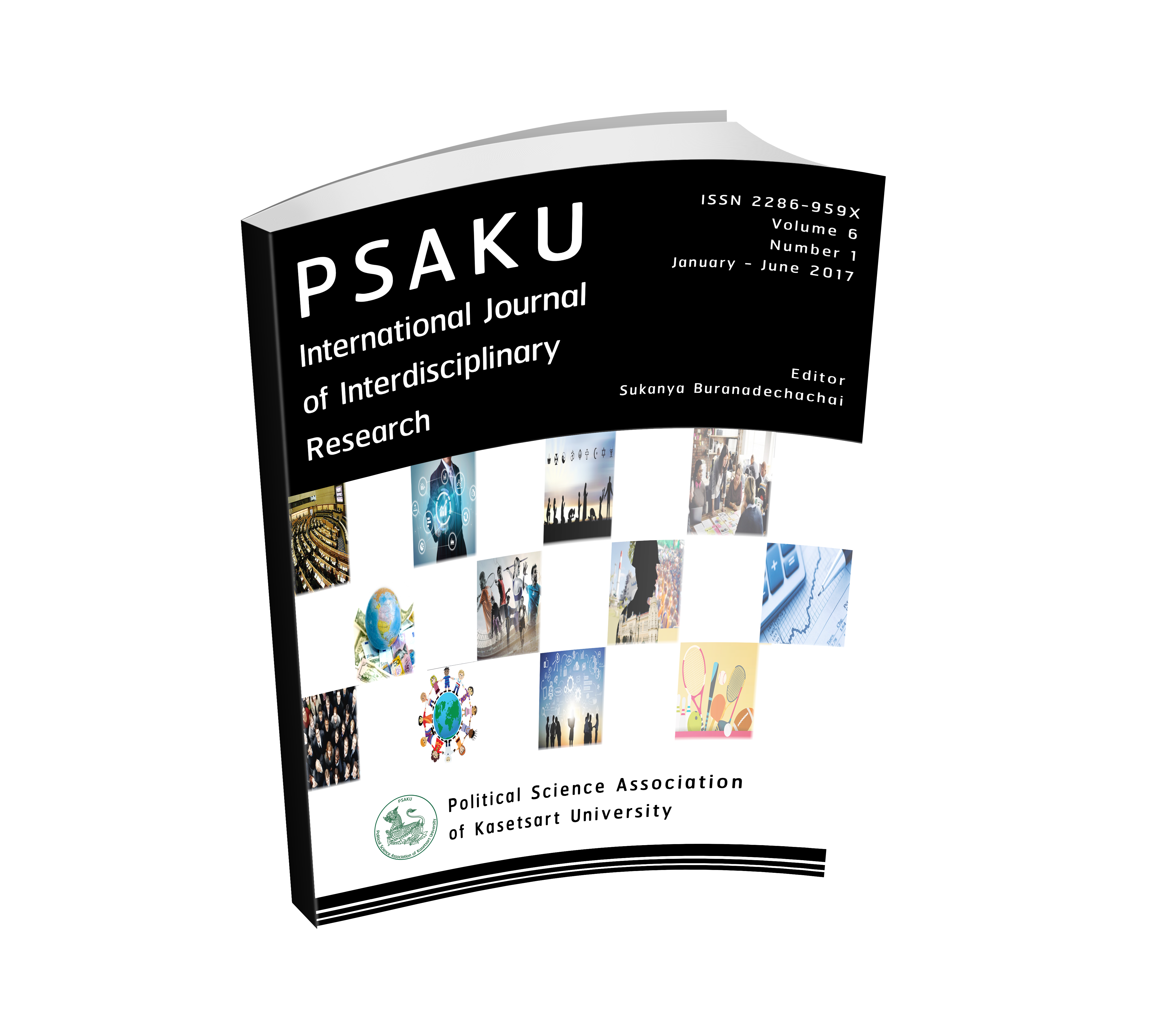Poverty Mangement strategies for Small-Scale Farmers through Alternative Economics: The Philosophy of Sufficiency Economy
Keywords:
Poverty Management Strategies, Alternative Economy, Philosophy of Sufficiency EconomyAbstract
The research studies Poverty Management strategies for Small-Scale Farmers through Alternative Economics: The Philosophy of Sufficiency Economy. After Thailand has been flourished for creating growth under modernized fundamental, which showed well result of industry development, exporting, public utilities system and higher national income, on the other hand, the development causes economic disparity, and wealth is dense among capital groups. Consequently, the majority of countries, especially small-scale farmers has been suffering from the lack of opportunity and poverty. The government has revised the policy by using Alternative Economics: The Philosophy of Sufficiency Economy in order to wipe out the poverty and it showed positive result since a number of small-scale farmers successfully managed to adopt philosophy of sufficiency economy and was able to land on their feet sustainably. The research found that capitalism impacts on small-scale farmers because the state centralized its management in all aspect; it only focuses on competition, efficiency and profitability by encouraging monocultural farming which its regulation is charitable to major producers an advantage. The market system is unfair. It also accelerates the destruction of nature and the environment as well as drives small-scale farmers who lacks of bargaining power and knowledge were taken for grant, discouraged and suppressed. Many people are suffering from bearing the high costs which is not worth trying for. Failure of practicing monoculture farming encourages small-scale farmers switch their method to aquaponic farming; adopting a new philosophy of sufficiency economy. The three-phase strategy include to survive, to be sufficient and to be sustainable immunize the farmers to achieve the complementary nature; adjusting farmland, reducing the use of chemicals, emphasizing the use of indigenous knowledge for well-being of the household to be able to live. Using appropriate technology of integration and professional networking opportunities and generating a steady income immunes the future risk.
Downloads












.png)


